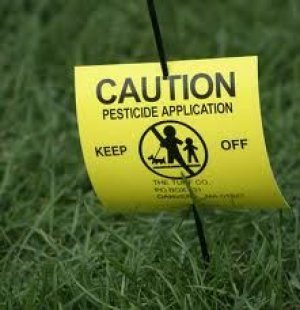
All iLive content is medically reviewed or fact checked to ensure as much factual accuracy as possible.
We have strict sourcing guidelines and only link to reputable media sites, academic research institutions and, whenever possible, medically peer reviewed studies. Note that the numbers in parentheses ([1], [2], etc.) are clickable links to these studies.
If you feel that any of our content is inaccurate, out-of-date, or otherwise questionable, please select it and press Ctrl + Enter.
Pesticides banned in the U.S. are exported to other countries
Last reviewed: 01.07.2025
 ">
">Just imagine that the products you eat every day cause serious harm to your health and the environment. But instead of carefully destroying these products, you knock on your neighbor's door and offer them to him at reduced prices. Is it easy for you to imagine such a thing?
But such a scenario is not so far-fetched. In the US, after a pesticide is banned for use because it poses too great a risk to human health and the environment, corporations are allowed to continue producing it for export to other countries, even if they are literally within reach.
Who suffers most from such US policy? Those people who live in the Southern Hemisphere and use drugs that are banned in the North and unregistered in their countries. As a result, their health and the health of their families suffers. Such countries in Africa, Asia and Latin America use 25% of the world's total pesticide production, but they account for 99% of deaths caused by these toxins. Around 25 million farmers and agricultural workers worldwide are poisoned by pesticides every year. The poorly educated and impoverished people are at greatest risk. They are often forced to use pesticides without special training or protective clothing.
Although these poor people suffer the most from toxic pesticides, people all over the world are negatively affected by these products. Pesticides know no borders. Millions of liters of agrochemicals move freely from country to country, thanks to the globalization of trade, as residues in products and fibers. They also pollute the air and water systems common to all countries. The U.S. Department of Agriculture estimates that about 50 percent of fresh fruits and 25 percent of fresh vegetables consumed in the country are grown overseas, while the Food and Drug Administration tests less than 1 percent of them. Even if certain pesticides are banned from use within the U.S., these toxins still return to the country, creating what is known as a “toxic cycle.”
The new documentary Toxic Profits tells all about this. Its authors talk about how US policy in the agrochemical production sector affects the lives of millions of people. It also shows alternatives to corporate-controlled, pesticide-intensive agriculture. The authors of the film emphasize that on the other side of the global pesticide market, which grows by several billion dollars annually, there are organic farming methods, which in most cases are more effective and profitable.

 [
[